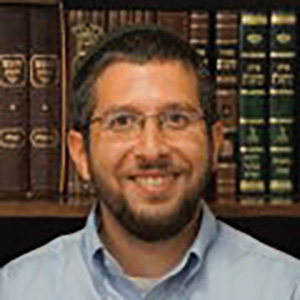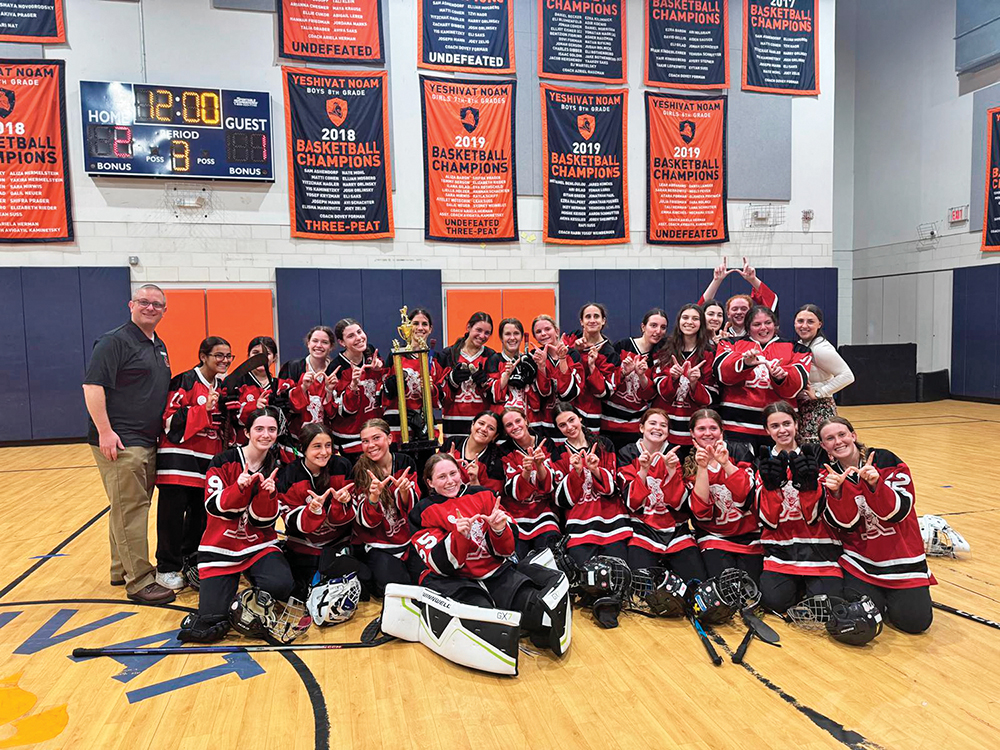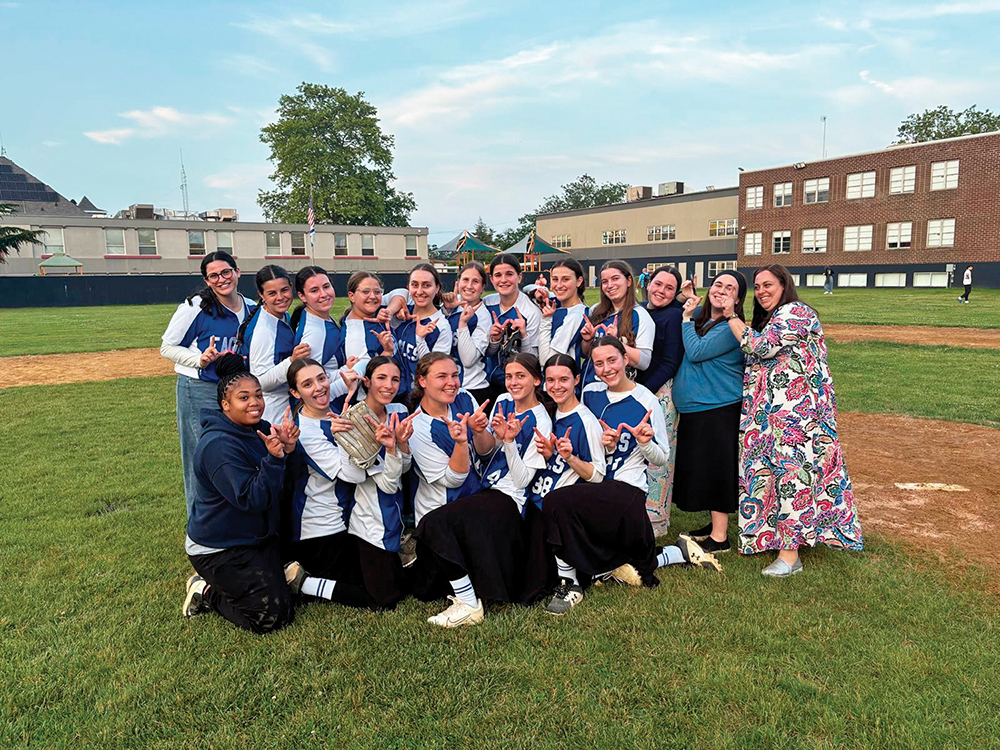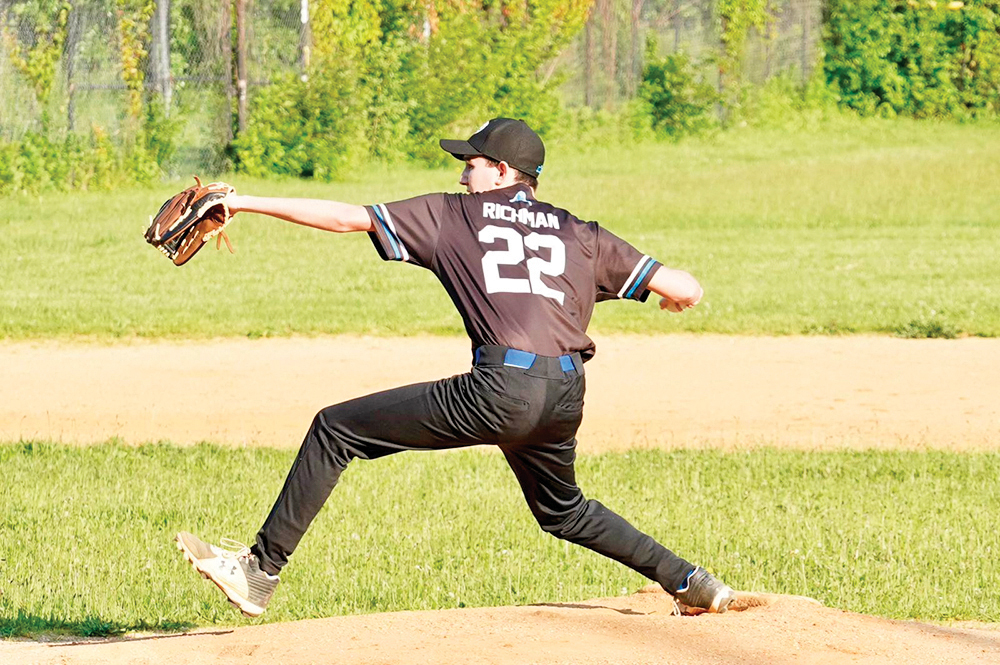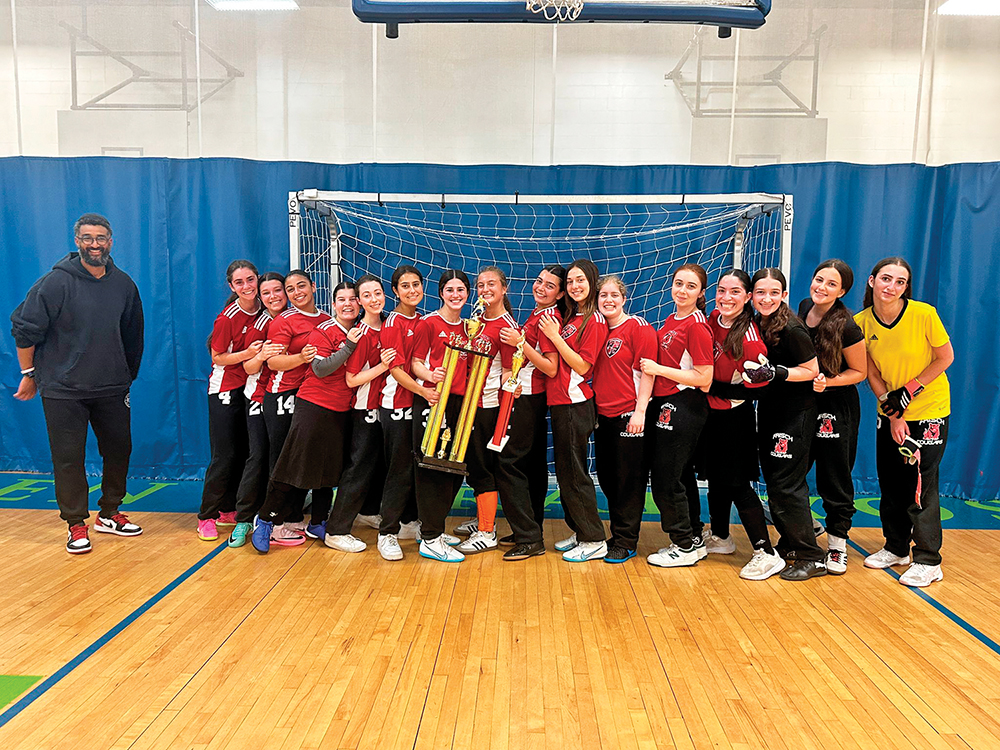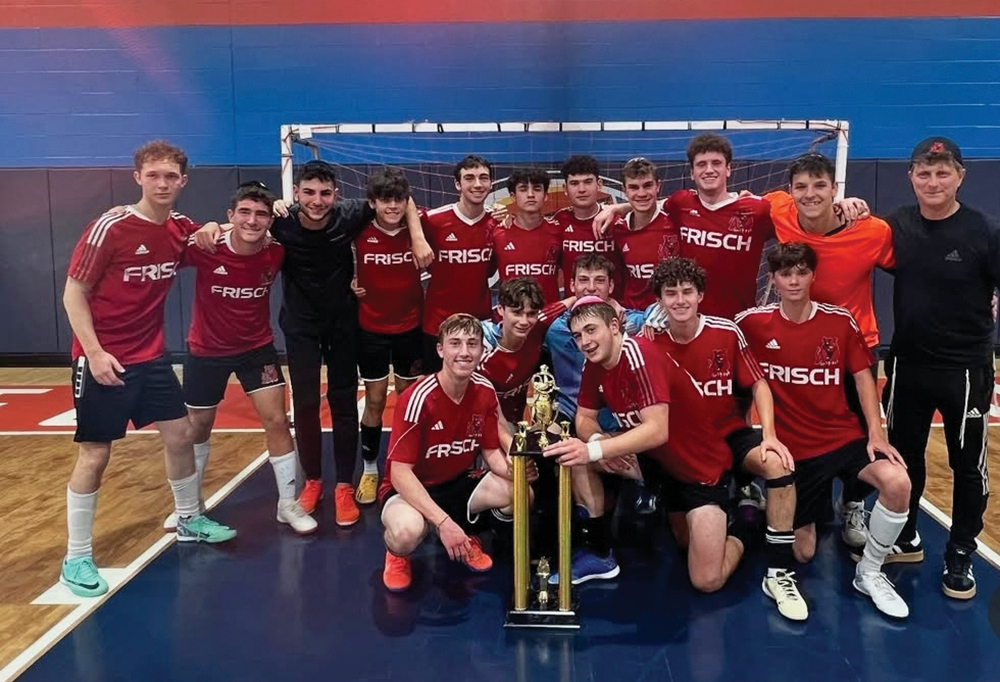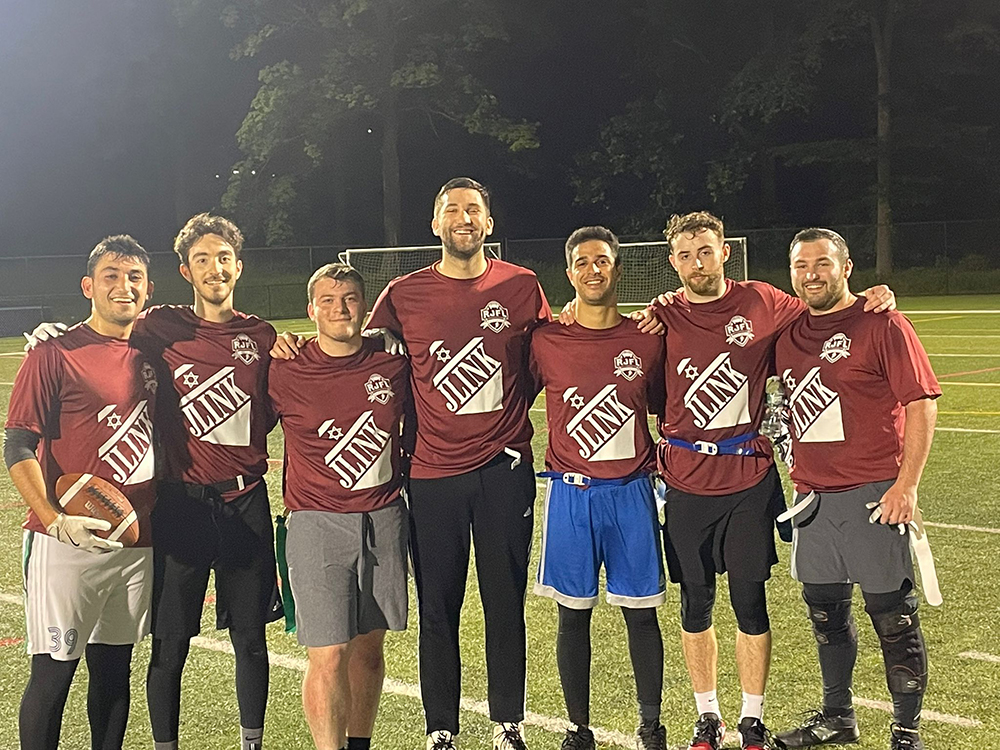
I was very excited to see the headline in The Jewish Link of the most recent article by my colleague, Rav Elie Mischel, titled “The Lulav Jews: Rediscovering Pride in Modern Orthodoxy,” (October 31, 2019). As someone who believes strongly in the importance and value of Modern Orthodoxy, I am excited whenever a discussion takes place regarding the ideal of Modern Orthodoxy lechatchila, where we should strive to be, as opposed to simply where we fall short. The idea of instilling pride into our hashkafat olam is something that is crucial to our future as a community. While it is always important for every individual and community to do a periodic cheshbon hanefesh and identify areas of shortcomings, it is no less important for each individual and community to clearly define and outline their ideals and goals: to have a clear vision of who we are and what we stand for, and what we strive toward.
I agreed with many thought-provoking and meaningful points that Rav Elie made, and very much enjoyed the beautiful Torah ideas that he shared and developed. I believe, however, that ultimately his overall vision for Modern Orthodoxy falls critically short. Before explaining my critique, I will point out that while Rav Elie was talking specifically about the American Modern Orthodox community—of which he is a prominent leader—I myself have had the privilege to live in Eretz Yisrael for the past 12 years. As such, I admittedly may not have the perspective that he does of the American community. Nevertheless, having grown up in America, and as someone who identifies with the Modern Orthodox hashkafa here in Israel, I believe I have what to add to the conversation.
Rav Elie begins by making a fundamentally crucial point: the importance of viewing our hashkafat olam as lechatchila.
As a community we need to stop viewing Modern Orthodoxy as a watered-down version of Orthodoxy, or as “Orthodox Lite.” As Rav Elie correctly points out, “this perspective on Modern Orthodoxy is not only damaging but also fundamentally mistaken.” It is never a healthy thing for someone to live their lives doing anything “lite,” or out of a sense of laziness or apathy. As Rav Elie suggests, if we don’t provide a compelling reason for the beauty and inherent importance of our community, then we run the risk of individuals leaving the community, in either direction.
We need to live our lives with a sense of pride and purpose: to be proud of who we are and what we stand for. As opposed to viewing ourselves as “neither here nor there,” we need to identify exactly what is unique and special about our community and wear it proudly.
What, then, is our uniqueness, and what do we stand for? It is here where I believe Rav Elie’s analysis falls short, as he arrives at what I would refer to as an overly practical, or utilitarian, view of Modern Orthodoxy. Citing the famous rabbinic suggestion that the four minim of Sukkot correspond to different types of Jews, Rav Elie distinguishes particularly between “lulav Jews” and “etrog Jews.” Whereas “etrog Jews” represents the “Torah scholar par excellence, the ‘elite’ of the Jewish people,” such a leader fundamentally remains apart from the people. In contrast, the “lulav Jew” represents a “different kind of leader,” someone who can “relate to other imperfect Jews and excel at binding them together.”
The uniqueness of the Modern Orthodox community, argues Rav Elie, is that we are “lulav Jews”—Jews who are able to “find common ground with all of his fellow Jews and bring them all closer to one another.” Through this attitude we are able to impact both the Jewish world and the world at large in a way that no other community can.
I certainly share Rav Elie’s pride in these special accomplishments, and agree that this contribution is unique to our community. However, is this alone the definition of Modern Orthodoxy? Is this the totality of our potential contribution to the mix? Are we simply to be defined as a community that can get along with other Jews?
For those of us who view Modern Orthodoxy as a lechatchila way of life, the answers to these questions must be a resounding “no!” Our self-definiton cannot be solely utilitarian; there must be an overarching philosophical basis to our position. Our identity as Modern Orthodox Jews must be based on the belief that Modern Orthodoxy is an authentic expression of Judaism. We must have a clear vision of what we stand for and believe in, and our leaders must clearly articulate and teach that vision—and ensure that the larger Modern Orthodox community understands and identifies with that mission in a meaningful way.
As Rav Lichtenstein, zt”l, writes in his essay “The Future of Centrist Orthodoxy”:
“By representing centrism, in effect, as more of a sociological than an ideological phenomenon, one blurs both the image and the reality of the centrist credo. This, in turn, serves almost by definition to undercut self-esteem, inculcating, if only subliminally, the sense that true lomdut and yirat shamayim are to be found further to the right, and genuine cultural sweep only to the left…focus upon content, defining centrism in its own terms as a worldview would drive home that it is an alternative, rather than a compromise. This would serve the interests of the quest for religious truth and provide a much-needed boon to self-confidence.”
For the sake of our own community and its growth and development, we must articulate clearly the foundations of our hashkafat olam.
What, then, are the philosophical underpinnings of our hashkafat olam? Here I won’t pretend to develop anything new, but I will simply quote once again from one of our generation’s greatest leaders, Rav Lichtenstein, zt”l:
“First, centrism is committed, ideologically and practically, to coping with the whole life, rather than just with its spiritual epicenter. It contends that advancing, individually and collectively, yishuvo shel olami, as a realization of the diving will…Under present circumstances we cannot be content with ministering to purely “religious” needs, but must see the social, economic, political, and even military spheres as falling within the purview of Torah existence… It strives to relate to the full range of the human spirit and its existential concerns. It seems to see avodat Hashem as a complex within which emotional maturity, aesthetic sensibility and human sensitivity find their place alongside central, specifically religious, components, such as commitment to talmud Torah, as elements within a broad spiritual existence.”
We believe that our lives as Torah Jews and ovdei Hashem are enhanced by being involved in the world around us, and that Judaism preaches being involved in the world even as we maintain our separateness: that we are to be a part of, and apart from, surrounding society at the same time.
To accomplish this, we must strive for greatness both in our observance of Torah and Halacha in addition to our involvement in the world. Our connection to the modern world should in no way lessen our commitment to our Orthodoxy. As Rav Lichtenstein, zt”l, argues in another essay titled “Centrist Orthodoxy”:
“Centrist Orthodoxy, specifically, can be powerful only when the concern for Torah remains passionate and profound, but is then supplanted by other elements. It can succeed when we can honestly state…we love not Torah less, but derech eretz—in the full, rich sense of that term—more.”
One of the wonderful things that results from our openness to the world around is that we develop a greater appreciation for diversity and complexity. In contrast to many other sects of Judaism, our Modern Orthodox community is extremely diverse—and in fact, I believe that our diversity is fundamental to the makeup of our community and should be celebrated. When successful, our community can produce both “etrog Jews” and “lulav Jews”—and we should be proud of both. In fact, our community needs both: “etrog Jews,” leaders of our community who identify fundamentally with our hashkafat olam, yet whose role is to remain somewhat separate and apart as they guide us in our quest toward greatness in Torah and mitzvot; and “lulav Jews,” individuals who are willing to devote their time to the overall communal work that Rav Elie identifies as so critically important. I would even go so far as to suggest that the ultimate goal should be for each of us to strive to be “etrog Jews”—to strive for excellence in all aspects of our Judaism. At the same time, our community’s openness and diversity allows us to appreciate the “lulav Jews” as incredibly important and valuable contributors to our community well.
It is commonly stated that in today’s world, one of the greatest issues facing today’s adolescents is a lack of self esteem, or a lack of appreciation for their true worth and what they can accomplish. As a result, they no longer strive for greatness. I would argue that the Modern Orthodox community suffers from this as well; we tend to sell ourselves short, and as a result hold back from striving for greatness. As Rav Elie suggests, it’s time that we rediscover our pride in Modern Orthodoxy. But to truly do so, we need to fundamentally rediscover what we are really all about; we need to rediscover a fundamental vision for our Modern Orthodoxy. To end with the extremely poignant words of Rav Lichtenstein,
“[our] hashkafic basis is sound, resources, resources reliable, and precedents evident. [Our] destiny will be determined, however, not so much by a set of principles as by the measure of fidelity to those principles—by the scope and intensity of the commitment to their realization…If Torah and Halacha become marginal to centrism, it shall be marginal to Jewish life. If they become focal, it can enjoy a long and vibrant future.”
Rav Yossi Goldin is the founder and menahel of Midreshet Torat Chessed, a gap year seminary located in Netanya, Israel, at Bet Elazraki Children’s Home that combines Torah learning and chesed on a daily basis. He grew up in Englewood and currently lives with his wife Shifra and five children in Shaalvim.



